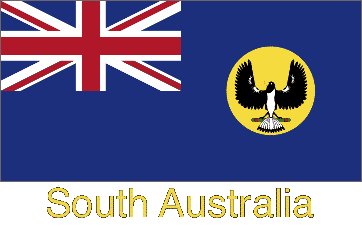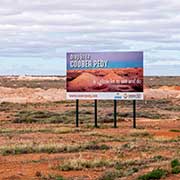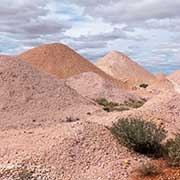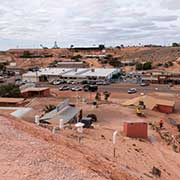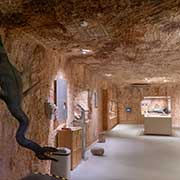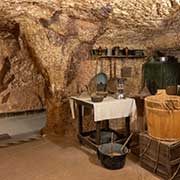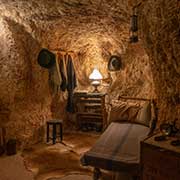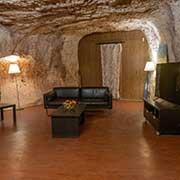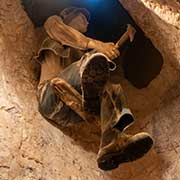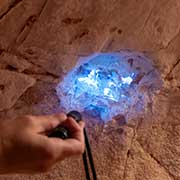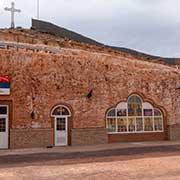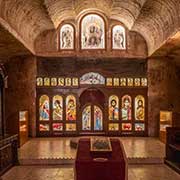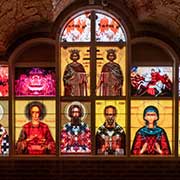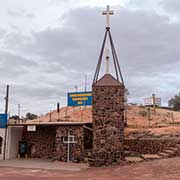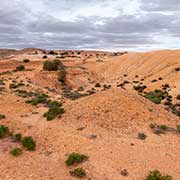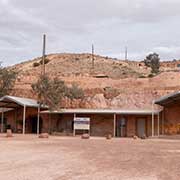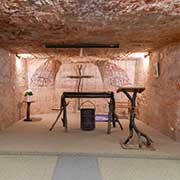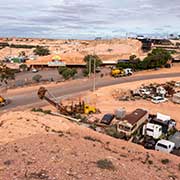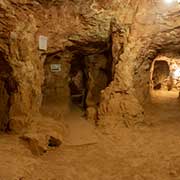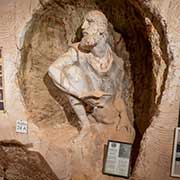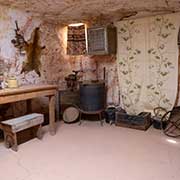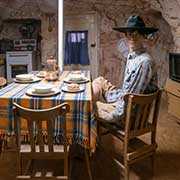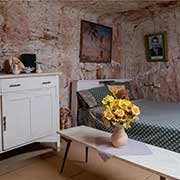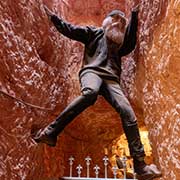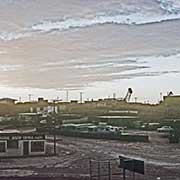Photos of Coober Pedy, the Opal capital of the world, Australia
Coober Pedy, the Opal capital of the world
Almost 850 kilometres north of Adelaide, on the Stuart Highway, is the town of Coober Pedy, called the “opal capital of the world” because of the quantity of precious opals mined there. As it can get scorching here, many dwellings and even churches are built underground, so-called “dugouts”.
you may then send it as a postcard if you wish.
Western Desert Aboriginal people have lived here for a very long time, and the land is considered traditionally that of the Arabana people, although other groups also have associations here. The town’s name, decided upon in 1920, is thought to be derived from “kupa piti”, a word in the Kokatha language, meaning “whitefella - a hole in the ground”, as it was somewhat puzzling to see those Europeans digging holes and then even living in them. In 1975, the local Aboriginal people adopted the name Umoona, which means “long life” for the town, and this name has since been used for various establishments here.
The first opals were found in 1915 by Willie Hutchinson; the town was established after that, and miners moved in a year later. After World War I, returning soldiers sought employment in the opal mines, and after World War II, many refugees, veterans, and immigrants from Southern and Eastern Europe came here as well. There is even an underground Serbian Orthodox church in the town. Tourism has developed, with the Umoona Opal Mine & Museum showcasing the mining, dugouts, and underground dwellings. The Old Timers Mine offers a self-guided tour through its passageways and underground dwellings.
